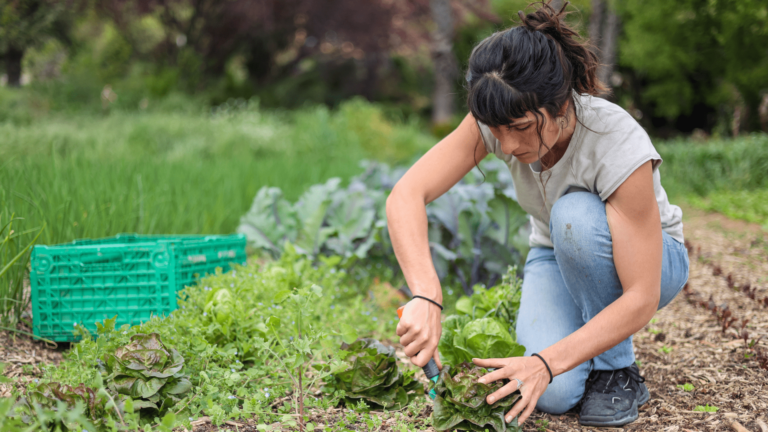In an era where environmental consciousness is increasingly becoming a priority, adopting sustainable practices like zero waste gardening is more important than ever. Zero waste gardening is a holistic approach to gardening that minimizes waste, conserves resources, and promotes a healthier ecosystem. By implementing simple techniques and mindful practices, you can transform your garden into a haven of sustainability. Here’s how:
Composting:
Composting is the cornerstone of zero waste gardening. Instead of sending organic waste to landfills, where it contributes to greenhouse gas emissions, composting allows you to recycle kitchen scraps, yard waste, and other organic materials into nutrient-rich soil amendment. Set up a compost bin or pile in your garden and add kitchen scraps, yard clippings, leaves, and other organic matter. Over time, microorganisms will break down the materials, turning them into compost that can be used to enrich your soil and nourish your plants.
Mulching:
Mulching is another essential practice in zero waste gardening. Mulch helps retain moisture in the soil, suppresses weeds, and adds organic matter as it breaks down. Instead of using synthetic mulches like plastic or rubber, opt for natural materials such as shredded leaves, straw, grass clippings, or compost. Not only are these materials biodegradable and eco-friendly, but they also contribute to soil health and fertility as they decompose.
Water Conservation:
Conserving water is crucial for sustainable gardening, especially in regions prone to drought. Implement water-saving techniques such as drip irrigation, which delivers water directly to the root zone of plants, minimizing waste through evaporation and runoff. Collect rainwater in barrels or cisterns and use it to irrigate your garden during dry spells. Additionally, choose drought-tolerant plants that require less water and incorporate water-saving features like swales and rain gardens into your landscape design.
Natural Pest Control:
Instead of relying on chemical pesticides, which can harm beneficial insects and pollute the environment, practice natural pest control methods to manage garden pests. Encourage biodiversity by planting a diverse range of plants that attract beneficial insects such as ladybugs, lacewings, and predatory wasps, which help control pest populations naturally. Introduce companion plants that repel pests or attract predators, and use physical barriers like row covers or netting to protect vulnerable plants from pests.
Seed Saving:
Seed saving is an age-old practice that not only preserves heirloom varieties and genetic diversity but also reduces the need for purchasing seeds each year. Save seeds from open-pollinated or heirloom plants that have adapted to your local growing conditions, and store them in a cool, dry place for future use. Share seeds with other gardeners in your community to promote seed sovereignty and preserve traditional plant varieties.
Sustainable Materials:
When designing and maintaining your garden, opt for sustainable materials that minimize environmental impact. Choose locally sourced and renewable materials for raised beds, trellises, and garden structures. Use natural alternatives to plastic, such as bamboo, wood, or metal, whenever possible. Repurpose materials like pallets, old tires, or salvaged wood to create functional and aesthetically pleasing garden features.
Reduce, Reuse, Recycle:
Embrace the principles of reduce, reuse, and recycle in your gardening practices to minimize waste and conserve resources. Reduce waste by avoiding single-use plastic containers and packaging when purchasing gardening supplies. Reuse materials such as pots, containers, and garden tools instead of discarding them. Recycle materials like cardboard, paper, and plastic to divert them from landfills and give them a new life in your garden.
By implementing these zero waste gardening techniques, you can create a sustainable and eco-friendly garden that nurtures both plants and planet. Embrace the principles of sustainability in your gardening practices, and you’ll not only reap the rewards of a bountiful harvest but also contribute to a healthier and more resilient environment for future generations.
Source Credits: ecowithrada
Also Read: Sustainable Cleaning Hacks: Keep Your Sink Clean with All-Natural Ingredients








